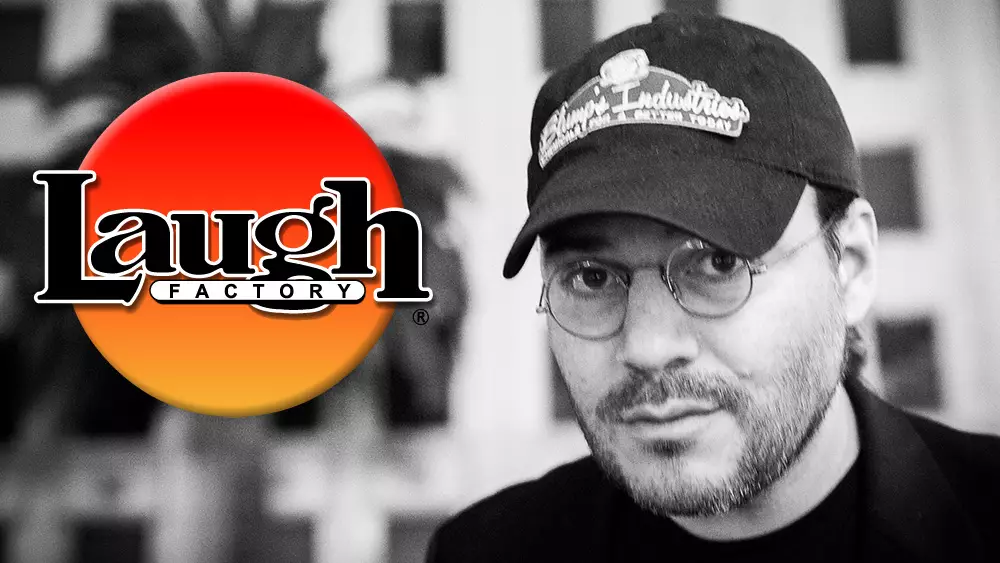The iconic Laugh Factory, renowned for its contribution to the stand-up comedy scene, is embarking on an ambitious venture into the realm of feature film production. With the establishment of Laugh Factory Entertainment, they aim to diversify their offerings beyond the confines of their comedy clubs. This strategic move is not just about generating new content but also about capitalizing on the brand’s established reputation within the entertainment industry. Leading this initiative are Laugh Factory President David Fuhrer, Head of Entertainment John Weiser, and founder Jamie Masada. Their joint vision revolves around fostering talent across various media, including film, television, podcasts, digital formats, and live performances.
Their inaugural project under this new banner is the comedy film Toad, directed by Adam Rifkin and co-written with Piers Ashworth. Following the misadventures of two naïve slackers, Sam and Alex, the film revolves around an absurd and comedic plot involving contraband psychedelic toads. The premise poses both an opportunity for humor and a reflection of the current trend of exploring unconventional and outrageous storylines in modern cinema. With actors James Paxton and Oliver Wyman leading the cast, Toad looks set to blend outrageous situations with laugh-out-loud moments, making it a fitting kickoff for Laugh Factory Entertainment’s film ambitions.
Toad represents a unique addition to the stoner comedy genre, a niche that has seen a resurgence in popularity due to its humorous take on the careless antics of its protagonists. The film’s storyline intricately weaves themes of friendship, adventure, and the unforeseen consequences of seemingly harmless decisions. As the duo finds themselves unwittingly high after attempting to revive the heat-stressed toads, viewers can expect an entertaining journey that amplifies the absurdity of their situation. Such narratives resonate well with audiences looking for escapism coupled with comedy, suggesting that Toad could be an effective entry point into the world of feature films for Laugh Factory.
A pivotal aspect of this transition is the experience that Fuhrer and Weiser bring to the table. With Weiser having spent over three decades at Sony Pictures Entertainment and taking on significant roles in the industry, including the position of President of Feature Film and Television Distribution, their entry into film production bears a level of credibility that could attract talent and bolster audience confidence. Fuhrer’s remarks regarding Toad being the “perfect project” for this new phase highlight not only their excitement but also an understanding of what modern audiences crave: engaging narratives paired with solid comedic timing.
Jamie Masada, the founder of Laugh Factory, expressed a sense of nostalgia and excitement about the potential of Toad to spotlight emerging comedic talent. His reference to an early casting suggestion for Jim Carrey signals a commitment to identifying and cultivating new voices in comedy. This approach can breathe fresh energy into the comedy landscape and offer innovative perspectives that resonate with diverse audiences. With Rifkin’s notable works behind him—such as Mousehunt and Detroit Rock City—his partnership with Laugh Factory hints at a collaboration steeped in experience and a shared vision.
Laugh Factory Entertainment has begun aligning with external partners to ensure Toad reaches its audience effectively. Calum Gray and Max Pirkus are set to manage worldwide sales through their UK-based company, Architect, while Mark O’Sullivan steps in as executive producer. These collaborations are essential in navigating the complexities of film distribution, particularly for a new production company aiming to secure a solid foothold in a competitive marketplace.
Laugh Factory’s foray into feature film production represents an exciting evolution of the brand. With Toad poised to set a comedic tone for future projects, the venture reflects a strategic reimagining aimed at broadening the appeal of an iconic institution. If successful, this endeavor not only has the potential to elevate the Laugh Factory’s brand but also enrich the comedy genre with fresh talent and innovative storytelling. This new path opens opportunities for comedians, filmmakers, and audiences alike, making it an intriguing chapter in the legacy of the Laugh Factory.

